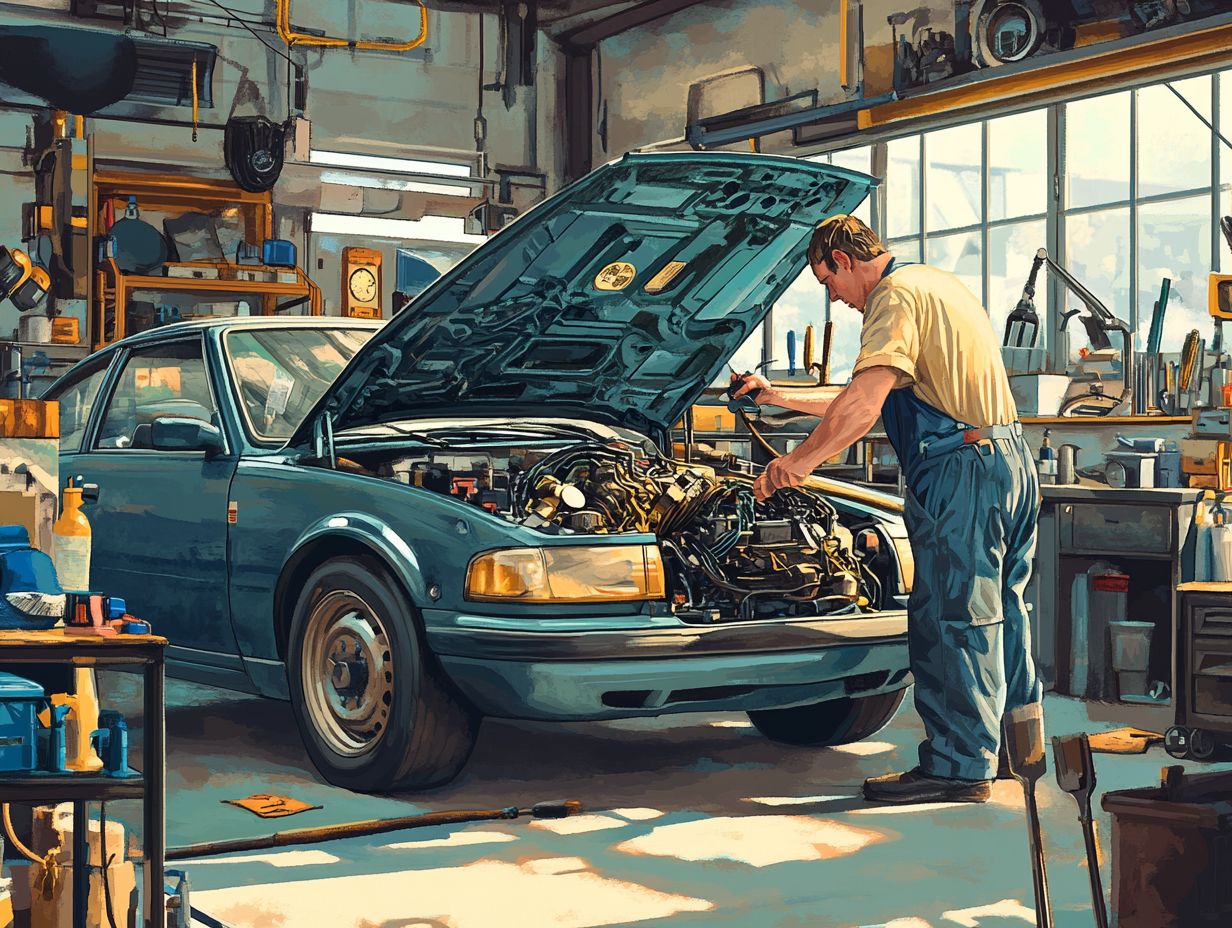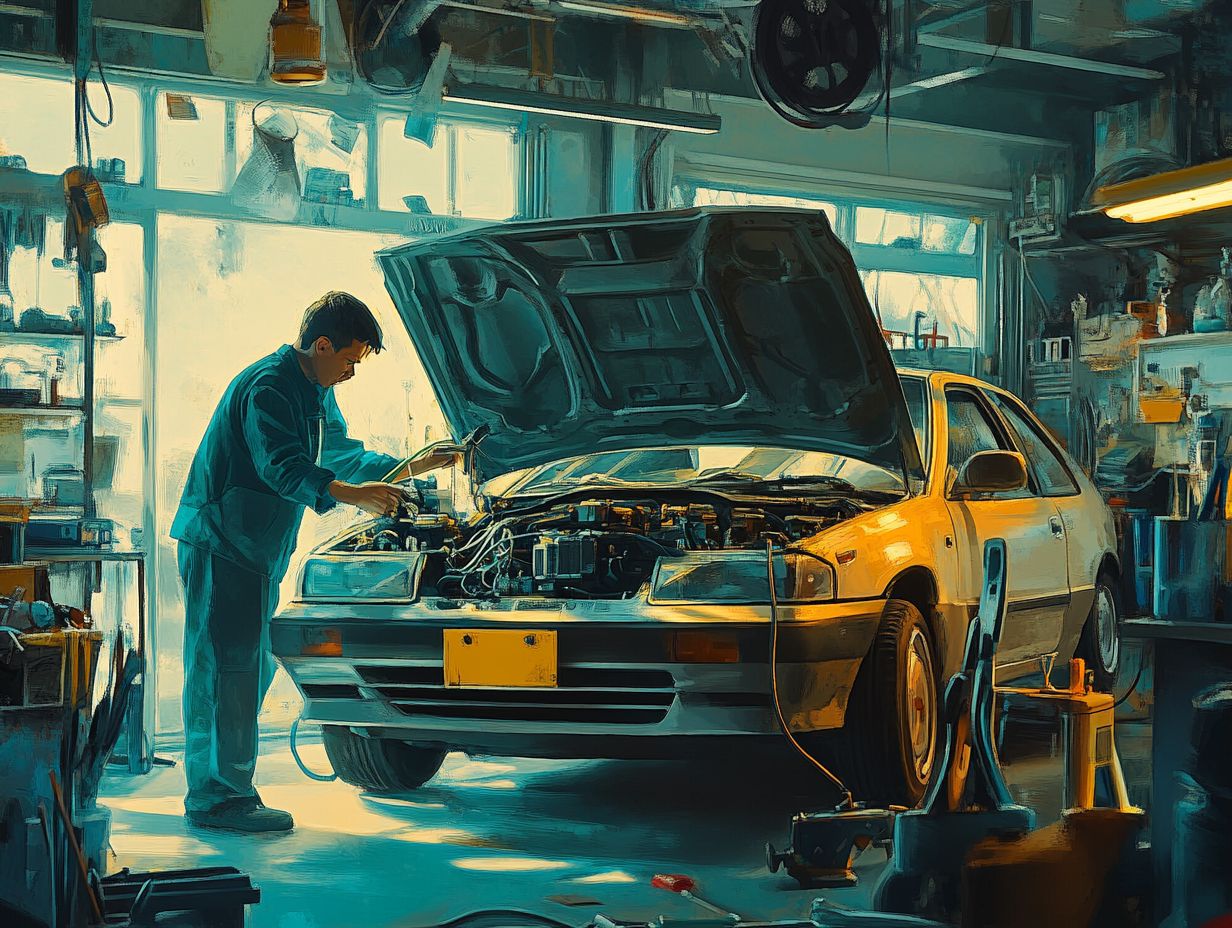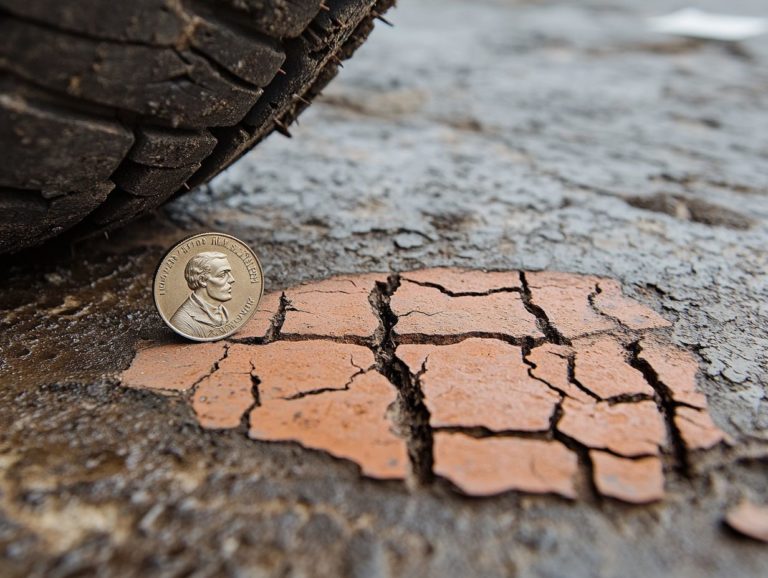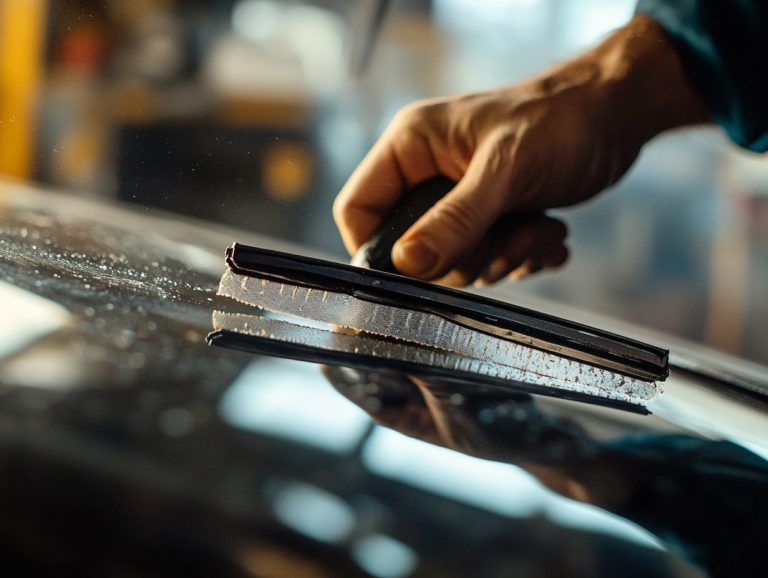How to Diagnose and Solve Car Starting Problems?
When your car refuses to start, it can be very frustrating. Understanding the common symptoms and reasons will help you find the issue more easily.
This guide offers a step-by-step diagnostic process, delves into potential solutions and fixes, and provides preventive measures to ensure your vehicle remains reliable.
Whether you re a seasoned mechanic or just someone who occasionally drives, this information will empower you to tackle starting issues with confidence and ease.
Contents
- Key Takeaways:
- Common Causes and Symptoms
- Diagnosing Car Starting Problems
- Solving Car Starting Problems
- Preventive Measures for Car Starting Problems
- Frequently Asked Questions
- 1. How can I tell if my car starting problem is due to a dead battery?
- 2. What are some other potential causes of car starting problems?
- 3. How can I troubleshoot a starter motor problem?
- 4. How do I know if the issue is with my fuel system?
- 5. What is the best way to diagnose an electrical issue with my car starting?
- 6. Can I solve car starting problems on my own?
Key Takeaways:
- Identify common causes and symptoms of car starting problems.
- Follow a step-by-step diagnostic process to pinpoint the issue.
- Implement possible solutions and fixes to solve car starting problems.
- Maintain your car regularly to prevent starting issues.
- Perform preventive measures to ensure a reliable car starting experience.
Common Causes and Symptoms
When your car won’t start, it s important to know what to look for. A dead battery is often the main reason, especially if you hear the engine cranking but it won’t ignite, possibly accompanied by a clicking sound.
This issue could also indicate starter motor problems or malfunctions in the ignition system that affect your vehicle s performance.
Diagnosing Car Starting Problems
Diagnosing why your car won’t start can feel overwhelming. However, by following what to do when your car won’t start, you can confidently uncover the root of the problem through a step-by-step process.
Start by gathering essential information from your vehicle. Pay attention to any unusual sounds those clicks or cranks when you turn the key tell you a lot. If you’re unsure, don’t hesitate to consult a professional mechanic. They can diagnose the issue and offer valuable troubleshooting insights.
Step-by-Step Diagnostic Process

A thorough step-by-step diagnostic process is vital for understanding why your engine isn’t cranking. Start by inspecting the battery terminals for corrosion, which can block power to the starter relay.
If the battery is okay, lightly tap the starter; if it engages, great! If not, you may have starter motor issues.
Next, check the starter relay. This part directs power from the battery to the starter motor. Listen for a click when you turn on the ignition. If you don t hear anything, it might indicate an electrical issue or that the relay needs replacing.
Don’t forget to check the fuel level. An empty tank can mimic similar symptoms. Also, consider other possible culprits like a blown fuse or problems with the ignition switch, which can prevent your engine from cranking smoothly.
Solving Car Starting Problems
After diagnosing your car’s starting issues, it’s time to explore effective solutions. A common and reliable approach is to jumpstart your car using jumper cables, which can revive a dead battery and provide the power needed to crank the engine. If the problem persists, refer to this guide on what to do when your car won’t start for additional troubleshooting steps.
Inspect for oil leaks and check that the spark plugs are in good condition. These steps are crucial for boosting your engine’s performance.
Don’t wait! Let s get your car started again right away!
Preventive Measures for Car Starting Problems
Preventive measures are key to keeping your car reliable and avoiding starting issues. This can spare you the frustrations of a dead battery or fuel complications.
Regular maintenance is essential for a hassle-free driving experience! Make it a habit to check for battery corrosion and ensure your vehicle’s electrical system is working smoothly.
Being aware of potential fuel problems can enhance your car s performance. This helps you sidestep those unwelcome moments when your vehicle refuses to start unexpectedly.
Tips for Maintaining a Reliable Car

Maintaining a reliable car demands regular attention to various components, including the engine, electrical system, and oil levels. Routine check-ups with a qualified mechanic are essential to spot potential issues like oil leaks or electrical problems before they escalate.
Scheduling these visits at recommended intervals ensures that every aspect of your vehicle is thoroughly evaluated. Regularly checking oil levels not only helps maintain the engine’s efficiency but also extends its lifespan.
It s crucial to stay vigilant about warning lights on the dashboard. They may signal electrical issues that need immediate attention.
Keep the battery terminals clean and check fluid levels in the coolant and brake systems. These small steps significantly boost your vehicle’s reliability, allowing you to drive with confidence.
When to Seek Professional Help
While many car starting problems can be resolved with basic troubleshooting, don’t wait! If you hear unusual noises or see flickering dashboard lights, consult a mechanic immediately. Seeking professional help is essential for ensuring your vehicle s reliability.
Look out for signs that may warrant professional assistance, like repeated failures to start your vehicle after several attempts. These indicators could point to deeper electrical problems or fuel system issues, both of which require specialized knowledge to resolve effectively.
Ignoring these symptoms might lead to further complications, ultimately resulting in more costly repairs. Therefore, prioritizing professional diagnostics contributes to the longevity of your vehicle and ensures your safety on the road.
Frequently Asked Questions
-
1. How can I tell if my car starting problem is due to a dead battery?
The most common sign of a dead battery is when you turn the key in the ignition and nothing happens. You may hear a clicking sound or notice dim dashboard lights. If your car’s lights and electronics are working, then the issue is likely not the battery.
-
2. What are some other potential causes of car starting problems?
In addition to a dead battery, other common causes of car starting issues include a faulty starter motor, a clogged fuel filter, a bad ignition switch, or a malfunctioning fuel pump. It’s best to have a professional diagnose the problem to determine the exact cause.
-
3. How can I troubleshoot a starter motor problem?
If you suspect your car’s starter motor is the issue, try tapping on it with a hammer while someone else turns the key in the ignition. If the car starts, this indicates a problem with the starter motor. However, it’s best to have a mechanic inspect and replace the starter if needed.
Have more questions? Feel free to reach out for personalized advice!
4. How do I know if the issue is with my fuel system?
If your car cranks but doesn’t start, this might indicate a fuel system problem. Listen for a buzzing noise from the fuel pump when you turn the key to the “on” position.
If you don’t hear anything, the fuel pump may need replacement. This is crucial for your vehicle to run properly.
5. What is the best way to diagnose an electrical issue with my car starting?
Electrical issues can cause your car’s lights and electronics to malfunction. Use a multimeter, a tool that measures voltage, to check the battery’s charge.
Also, inspect the fuses and wiring for visible damage. Address these issues promptly to avoid getting stranded.
6. Can I solve car starting problems on my own?
You can tackle some minor issues yourself, but leave major problems to the pros. Fixing complex issues without expertise can lead to further damage and expensive repairs.







